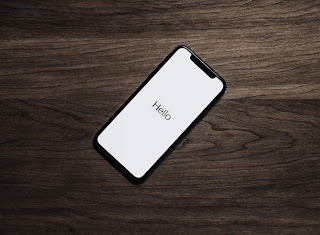I will refer about in the fast-paced digital world today, smartphones have become an integral part of our daily lives. They provide us with instant access to information, communication, entertainment, and a multitude of other services. However, the increasing dependence on smartphones has led to a phenomenon known as cellphone addiction. In this article, I want to explore both the positive and negative effects of smartphone addiction, about fell us connected o disconnected.
I think that we can to define 3 points how positive aspects:
- Enhanced Communication: Smartphones have revolutionized the way we communicate. They allow us to stay connected with friends, family, and colleagues without think about distance. Social networking apps, messaging platforms, and video calls have made it easier to maintain relationships, share experiences, and collaborate on projects.
- Access to Information: With the internet at our hands, smartphones provide instant access to a big amount of information. We can search for answers, learn new skills, and stay updated on news and events. This ready access to knowledge promotes continuous learning and personal growth.
- Convenience and Efficiency: Smartphones have consolidated various devices into one portable gadget. They serve as cameras, music players, GPS navigation systems, and more. This consolidation of functionalities makes our lives more convenient and efficient, reducing the need to carry multiple devices.
The question is how all this technological and communicative help brings us closer to or further away from the dynamics of social interaction.
Precisely, I could to return to the subject by mentioning the negative aspects that I identify, speaking about 3 points:
- Distraction and Decreased Productivity: The constant notifications, alerts, and the lure of social media can easily distract individuals, leading to decreased productivity and difficulty concentrating on tasks. Excessive smartphone use can disrupt work, study, and personal interactions, affecting overall performance and well-being.
- Physical and Mental Health Implications: Excessive use of smartphones can contribute to physical health problems such as eye strain, neck and back pain, and disrupted sleep patterns. Moreover, the constant need for validation through social media and the fear of missing out can lead to increased stress, anxiety, and low self-esteem.
- Impaired Social Interactions: Overreliance on smartphones can hinder face-to-face social interactions. People may become engrossed in their virtual lives, neglecting real-life connections. This can lead to feelings of isolation, loneliness, and a decline in social skills.
The third aspect is the most worrisome for me, since it is a matter that we are seeing in the new generations, and even in older people who have developed affinity and skills to handle smartphones... Young people for not learning to interact socially and the old people for forgetting to do it, leading to loneliness.
The smartphones have undoubtedly transformed our lives for the better, enabling us to connect, access information, and be more productive. However, it is crucial to recognize and manage the negative effects of cellphone addiction. By striking a balance between the benefits and limitations of smartphone use, we can harness the positive aspects while safeguarding our well-being and relationships without isolating ourselves into loneliness.
Diego Luis García Estefan



Comentarios
Publicar un comentario